John Glover, Christmas hero of American Revolution, rowed George Washington across the Delaware — here's his amazing story
Gen. John Glover, a Massachusetts mariner, was head of a regiment of rugged seamen-soldiers who successfully led George Washington and 2,400 troops on their daring raid across the Delaware River on Christmas Day 1776.
Thomas Paine, a reluctant English tax collector and failed businessman who arrived in America on the eve of revolution, published "Common Sense" on this day in history, Jan. 10, 1776.
"In the following pages I offer nothing more than simple facts, plain arguments and common sense," Paine wrote.
"The cause of America is, in a great measure, the cause of all mankind."
The explosive treatise fueled revolution in the minds of the American people. It implored colonists to stand behind the heroic rebellion against the British crown underway in Massachusetts.
The American Revolution was in its infancy at the time. The Massachusetts Minutemen had routed the British army at Concord in April 1775 and chased the Redcoats all the way back to Boston.
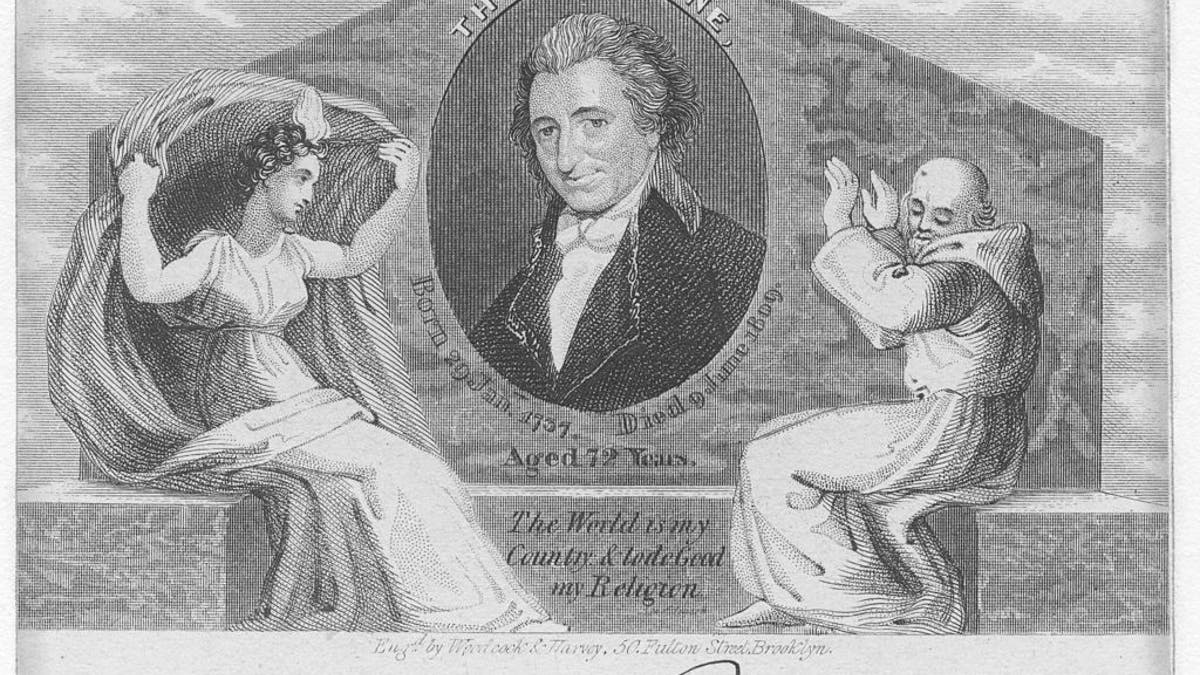
A memorial engraving of Thomas Paine, with a smirk on his face, containing his dates of birth and death, with text reading, "The World is my Country and to do Good my Religion," as figures of religion and law shield themselves from his image, 1815. From the New York Public Library. (Smith Collection/Gado/Getty Images)
An army of New England farmers, now under the leadership of General George Washington of Virginia, was laying siege to the Brits in Boston in the winter of 1775-76.
"Common Sense" scripted the next chapter. It proved wildly popular and helped inspire the Declaration of Independence just six months later.
It was simply worded but philosophically profound, published in the rabble-rousing pamphlet format popular in the era.
Paine wrote, with great gravitas, "We have it in our power to begin the world over again."
The New Testament notion of a new beginning for fallen humanity served as the spiritual foundation of the Revolutionary War generation. Paine filled his work with references to the failures of the kings of the Old Testament.
"We have it in our power to begin the world over again." — Thomas Paine
"Paine's ‘Common Sense’ made an irrefutable argument for separation from England and described the revolution as not only achievable but inevitable," writes the Thomas Paine Society.
"Throughout the colonies letters to newspapers quoted Paine's words. ‘Nothing else is talked of,’ wrote Bostonian Andrew Elliot to a friend in London. ‘I know not what can be done by Great Britain to prevent it.’"
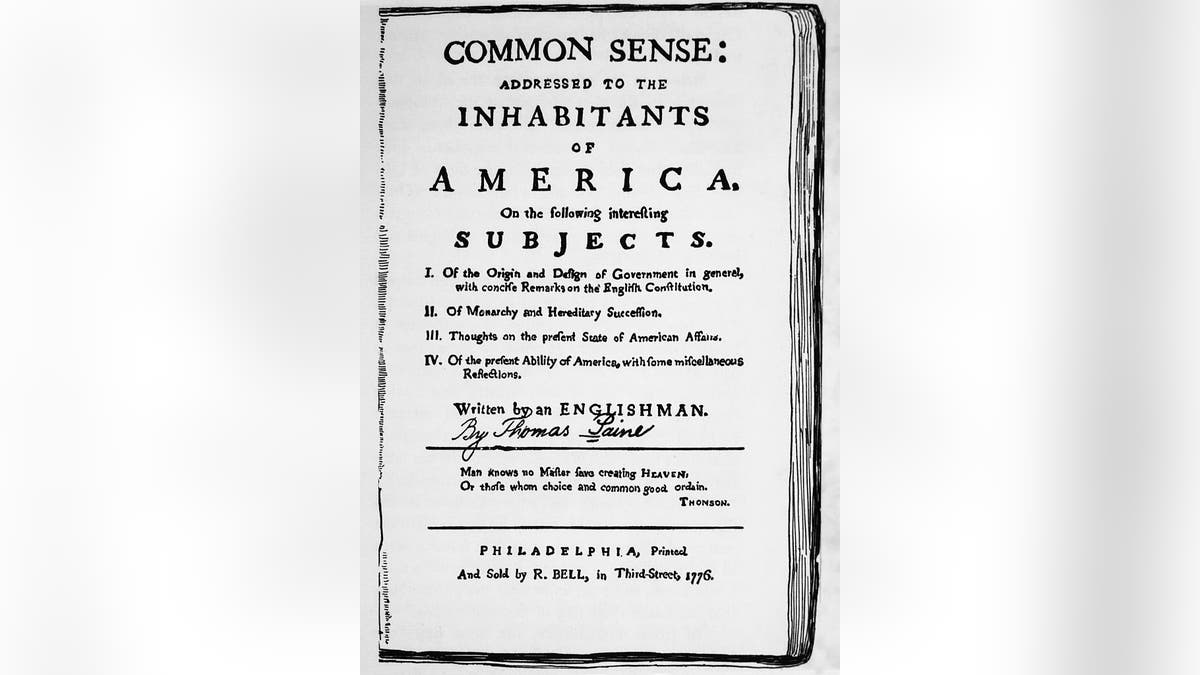
Pamphlet cover of "Common Sense" by Thomas Paine, 1776. (Universal History Archive/Universal Images Group via Getty Images)
Many of the searing criticisms in "Common Sense" of overbearing, unaccountable government ring as true today as they did in 1776.
"Society in every state is a blessing, but government, even in its best state, is but a necessary evil; in its worst state an intolerable one," Paine wrote.
Paine's call to intellectual and physical arms "sold 120,000 copies in its first three months, and by the end of the Revolution, 500,000 copies were sold," reports the National Constitution Center.
"The estimated population of the Colonies (excluding its African-American and Native American populations) was 2.5 million."
"Common Sense" sold the equivalent of 66 million copies relative to America's population today.
It’s as if a book sold 66 million copies by today's U.S. population — making "Common Sense" perhaps the best-selling work in American history.
Paine mocked the idea of monarchy as a legitimate form of rule. It was a truly revolutionary concept among a species governed since the dawn of recorded time by strongmen, tyrants and hereditary rulers.
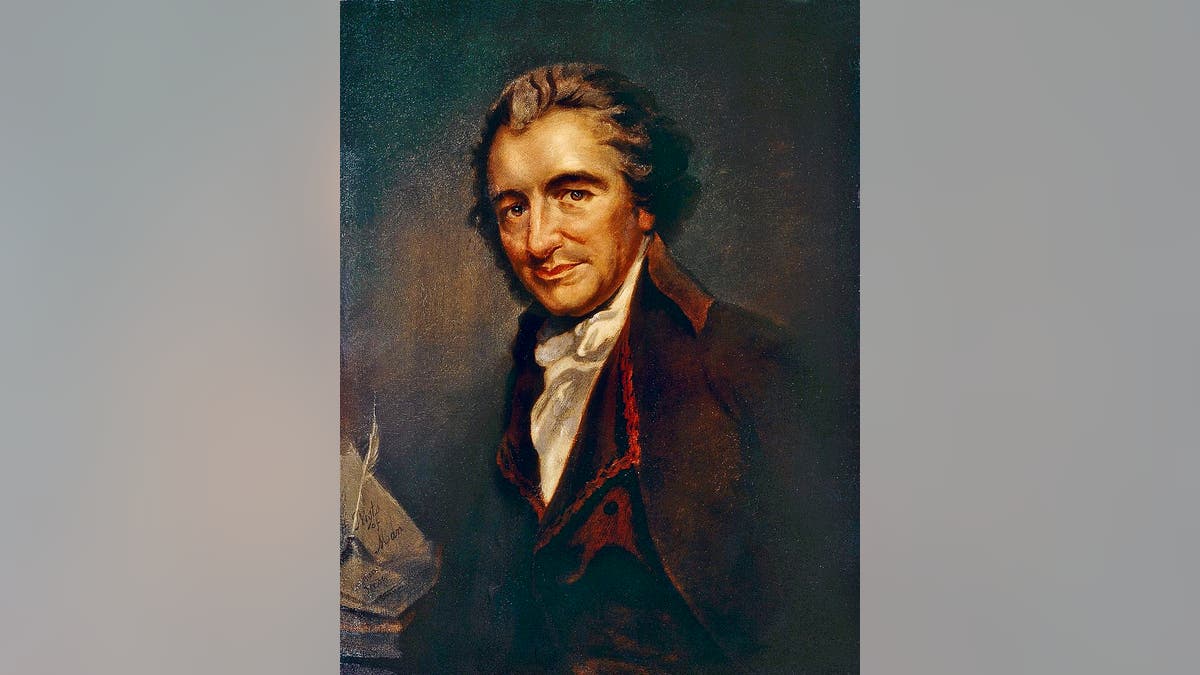
UNITED KINGDOM - CIRCA 2003: Portrait of Thomas Paine (Thetford, England, 1737-New York, USA, 1809), English revolutionary, politician and intellectual. Oil on canvas, by George Romney (1734-1802), 1876, 40x30 cm. London, National Portrait Gallery. (DeAgostini/Getty Images)
"There is something exceedingly ridiculous in the composition of monarchy," wrote Paine. "The state of the king shuts him from the world, but the business of a king requires him to know it thoroughly."
Paine was born in Thetford, England, on Feb. 9, 1737.
Searing criticisms in ‘Common Sense’ of overbearing, unaccountable government ring as true today as they did in 1776.
"He later worked as an officer of the excise, hunting smugglers and collecting liquor and tobacco taxes. He did not excel at this job, nor at any other early job, and his life in England was, in fact, marked by repeated failures," writes Biography.com.
"In the spring of 1774, Paine was fired from the excise office and began to see his outlook as bleak. Luckily, he soon met Benjamin Franklin, who advised him to move to America and provided him with letters of introduction to the soon-to-be-formed nation."
MEET THE AMERICAN WHO ROWED WASHINGTON ACROSS THE DELAWARE ON CHRISTMAS: SAILOR-SOLDIER JOHN GLOVER
Like many before and millions more after, Paine found new hope in America.
He arrived in Philadelphia on Nov. 30, 1774, just six months before protest turned to open warfare at the Battles of Lexington and Concord.
Among his first efforts in America, Paine published a scathing indictment of the global slave trade.
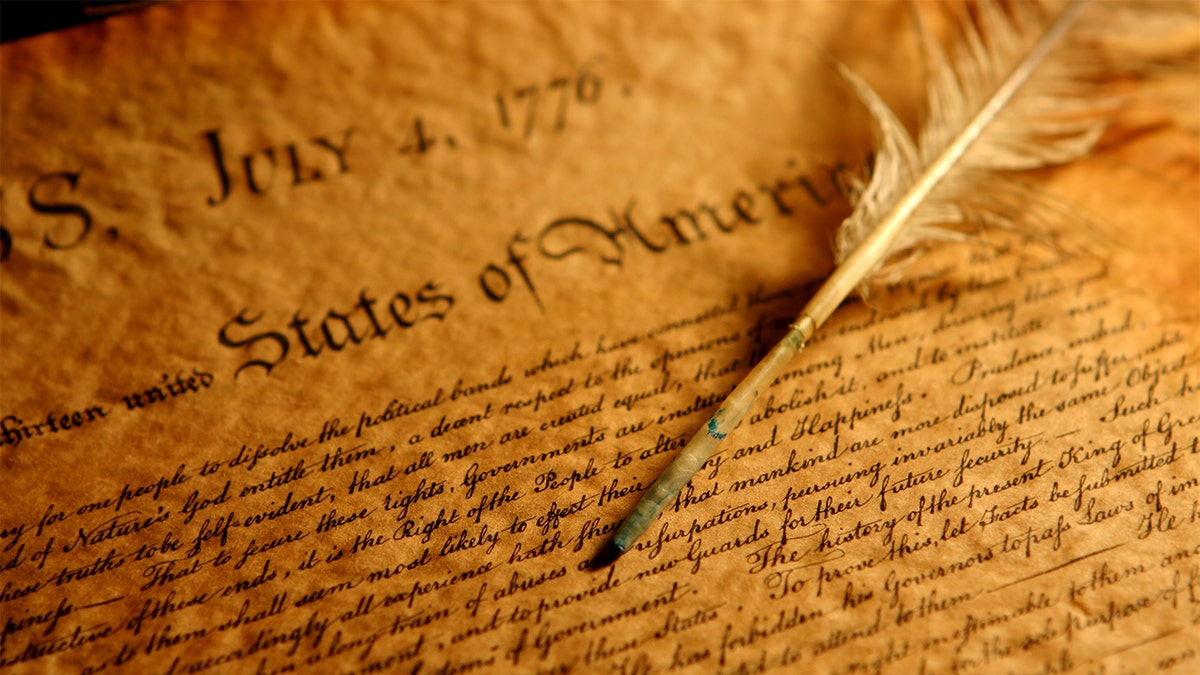
Replica of the Declaration of Independence. Some scholars say Thomas Paine had a hand in drafting the Declaration of Independence. (iStock)
The Englishman reserved his greatest monarchial mockery for the British crown in particular.
"No man in his senses can say that their claim under William the Conquerer is a very honorable one," Paine wrote of the Norman invader who defeated Anglo-Saxon King Harold in 1066.
"There is something exceedingly ridiculous in the composition of monarchy." — Thomas Paine
"A French bastard landing with an armed banditti and establishing himself as king of England against the consent of the natives is, in plain terms, a very paltry rascally original — it certainly hath no divinity in it."
"Paine's convincing arguments against the monarchy and British domination spread like wildfire throughout the colonies and turned the public tide toward independence," writes the Thomas Paine Society.
CLICK HERE TO SIGN UP FOR OUR LIFESTYLE NEWSLETTER
George Washington proclaimed, "I find that ‘Common Sense’ is working a powerful change there in the minds of many men. Few pamphlets have had so dramatic an effect on political events."
Some scholars argue that Paine played a silent role in drafting the Declaration of Independence. Whether true or not, his contributions to the cause of revolution were far from over.
He published "The Crisis" with Washington’s army in tatters after repeated routs and the cause of independence about to collapse.
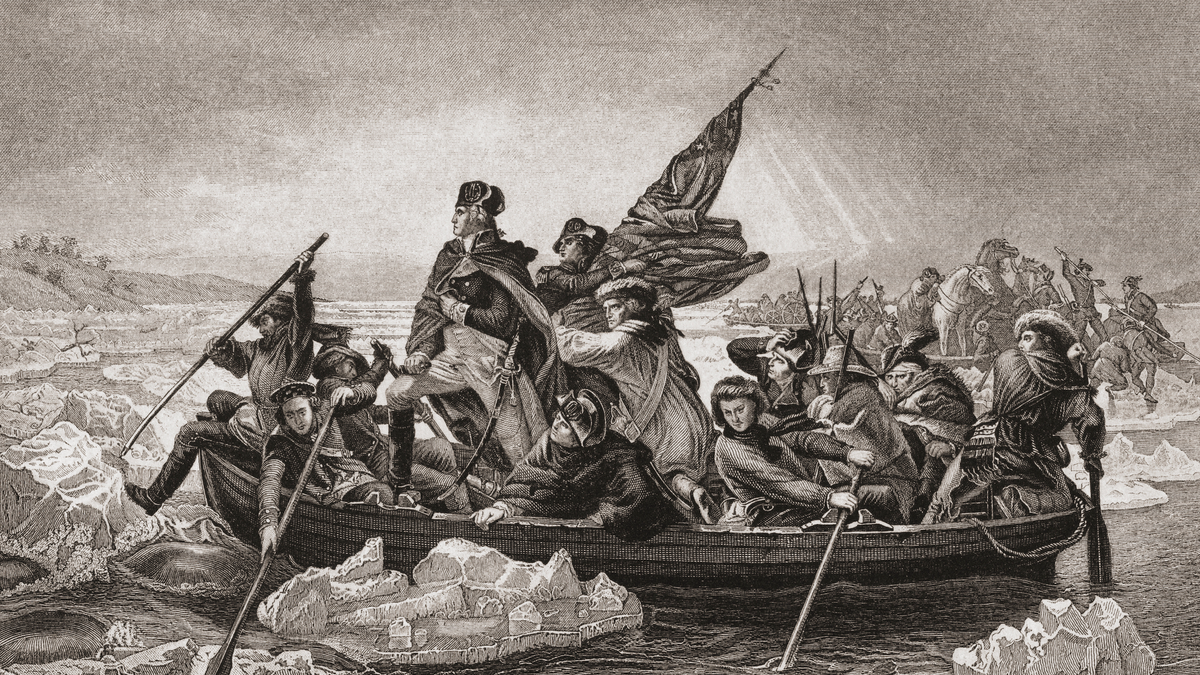
Washington crossing the Delaware, near Trenton, New Jersey, Christmas 1776. George Washington, 1732-1799, first president of the United States. From English and Scottish History, published 1882. (Universal History Archive/Universal Images Group via Getty Images)
"These are the times that try men’s souls," Paine famously wrote with poetic passion on Dec. 23, 1776.
"Tyranny, like hell, is not easily conquered; yet we have this consolation with us, that the harder the conflict, the more glorious the triumph."
CLICK HERE TO GET THE FOX NEWS APP
Two days later, on Christmas night, Washington led his army on a daring raid across the Delaware River to overwhelm a Hessian outpost of the British crown in Trenton, New Jersey.
"The Crisis" had now turned in America’s favor — in favor of Paine's "cause of all mankind."
For more Lifestyle articles, visit www.foxnews.com/lifestyle.

